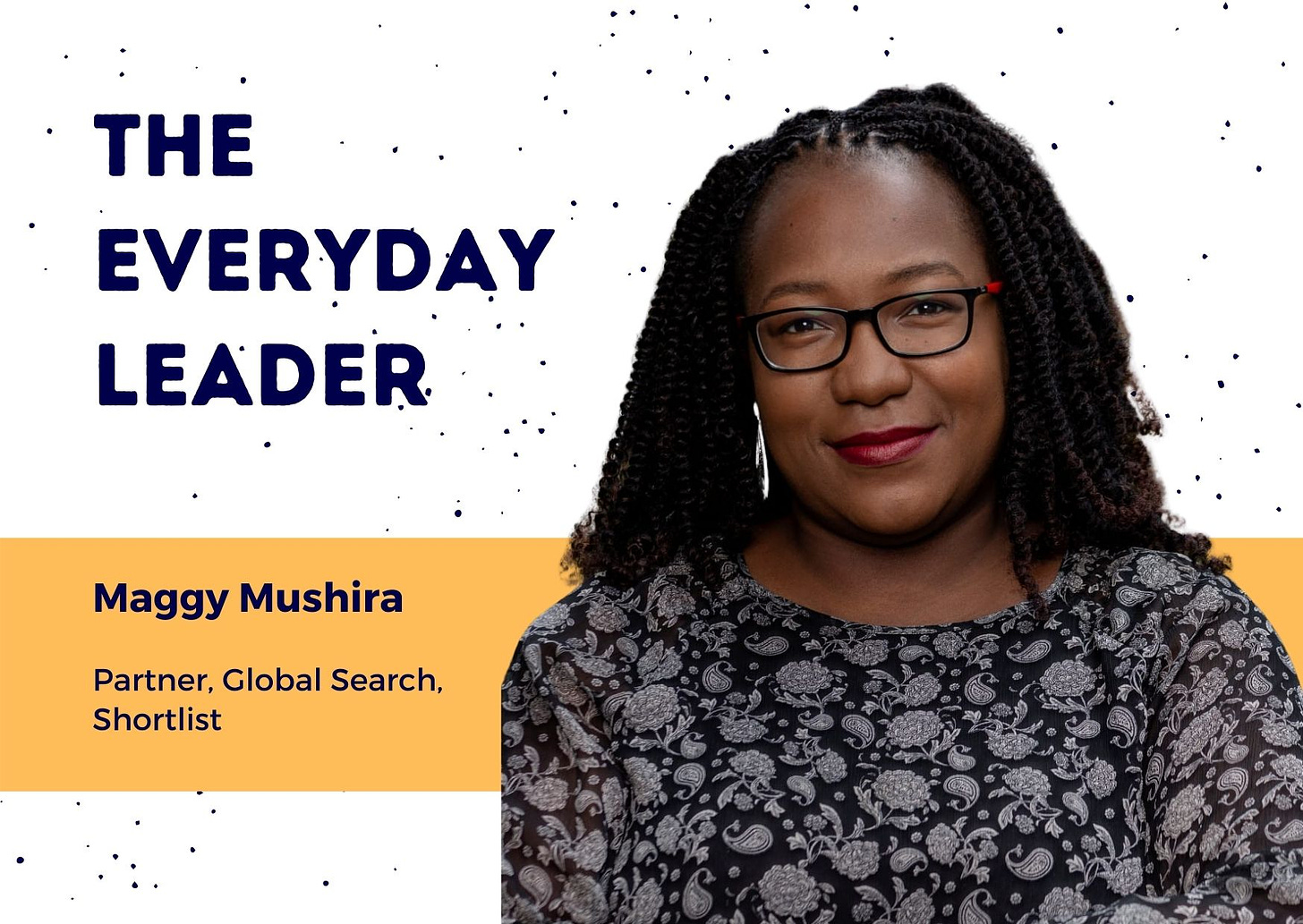Hi everyone, here’s what we have for you this week:
Managers' professional development needs and goals are evolving. Temitayo Samson-Grace, the Head of Talent at Big Cabal Media, shares insights about how best to support managers in response to our 2022 Manager Support Survey findings.
How do you recruit top leaders into a company? In this week’s episode of The Everyday Leader, Maggy Mushira from Shortlist speaks about her experience identifying leaders with high EQ to step into existing management teams.
First-time managers encounter several common blindspots. We share learnings from managers about challenges they faced as a first-time manager.
Read on for more details…
Managers' professional development needs and goals are evolving
Temitayo Samson-Grace is based in Lagos, Nigeria and serves as the Head of Talent at Big Cabal Media, the media company behind content brands such as Tech Cabal and Zikoko. Prior to joining Big Cabal Media a year ago, she previously held a People Operations Partner role at Rensource Energy. She is the Founder of Bloome Academy, a future focused learning platform dedicated to supporting young professionals in their career journey where she also serves as a life and career coach. In her current role at Big Cabal Media, she is responsible for all talent needs at their fast-growing company, including talent acquisition, onboarding, training, culture, compensation, performance management and retention initiatives.
Last month, Temitayo participated as one of three panelists invited to comment on our CoffeeChat 2022 Manager Support Survey findings. CoffeeChat's second annual Manager Support Survey captured important trends around leadership development at 50 top companies and organizations with an operational footprint across Africa.
When reviewing the survey results, Temitayo found several points very interesting. First, the finding that around half of companies did not care or felt neutral about program certificates as a criteria for selecting leadership programs stood out to her. She sees this as a sign of progress, since she feels that leadership is about observable skills and experience, rather than certificates. Second, she agreed that flexibility and choice are increasingly common in leadership development programs as a way to empower managers to engage with content, peers and coaches in the way they want and when they have the time and energy for this.
At Big Cabal Media, there are currently around 20 managers in total. As a startup, there is a strong emphasize on learning on the job. Managers and soon-to-be managers are often intentionally assigned projects that help them practice and improve specific skills. There is also an active culture of sharing self-improvement resources through general and team Slack channel. That said, she is also currently exploring and experimenting with new types of programs and structured resources she can arrange for her managers. Her selection criteria is strong alignment with her team members’ diverse and real-time needs. She has already found that 1:1 coaching is a highly flexible option since conversations are catered for the individual’s context.
Confronting insecurities by speaking about them, balancing strategy with execution, and how great leaders can step in and succeed with almost any team
Here are a few highlights from the conversation with Maggie:
Confronting your insecurities out loud can help overcome imposter syndrome: In her first job at a bank, rather than volunteering or applying, Maggy was identified and appointed as a team leader of a customer service team. She was aged 26 at the time, and while she had found herself gravitating towards various leadership roles growing up, part of her was still anxious to step into this professional management role. She was supervising a team of 5, some of whom were older and more experienced than her. She worked with several mentors and coaches to help her overcome her anxiety. She discovered that speaking aloud her concerns about feeling unworthy of leading others and having her coach mirror these thoughts back to her made her realize that her inner thoughts made much less sense. This gave her the confidence she needed to move forward.
Great leaders can step in and succeed with almost any team: In her current role at Shortlist, Maggie often searches for senior leaders to fill vacant roles at companies. Her guiding principle is that future performance is best predicted by past performance in similar roles. In finding an ideal list of candidates, she relies heavily on interviews, psychometric assessments and reference checks. While there are many types of leadership styles and team dynamics, she has found that leaders with high emotional intelligence (EQ) are able to adapt successfully when joining an. Often exceptions to this are when the existing top leader, such as the CEO at the company has a low EQ to begin with, situations which she tries to avoid.
Learning from the ground up enables a leader to balance strategy and execution: Because Maggy entered the recruitment industry in an entry-level role and worked her way up to a senior leadership role, she is able to relate to the challenges of her team. She also finds herself comfortable switching between an executional and strategic lens on a day-to-day basis when guiding her team’s work.
Common First-Time Manager Mistakes
Stepping into a manager role for the first time brings new learnings which are unique to each person. Still, there are some common examples of blindspots for first-time managers that should be anticipated and prepared for. In our podcast The Everyday Leader, we hear from managers about their career journey and management experience. Here are 3 learnings from several of these managers about common mistakes when they first stepped up into a management role:
Not letting go of and handing over previous roles and responsibilities: As an individual contributor, a large portion of your job is likely execution-focused. When you transition into a manager role, you become more of an accountability partner. You will be expected to provide guidance, help with resources, and contribute to the strategy and vision of the organization. Because of this, it is important to take a step back and think about your new role and how your responsibilities are shifting. It’s important to know when to pull back from a hands-on operational role. Délice Fatiro from Resonate in Rwanda initially found it difficult to reduce the amount of training she was doing on her own, but eventually realized that she would have a bigger impact on supporting the other trainers and found ways to develop trust in their abilities. She now approaches her work with a mindset of how she is going to help her team do it, rather than do it herself.
Not proactively seeking out feedback: For a number of reasons, it can be easy to forget to build in regular ways to collect feedback, whether that’s based on strategy or your performance as a manager. The 360-feedback model is a popular way of doing this. However, if you do not have such a structure in place, you can have one-on-one meetings with each individual to discuss this. Feel free to ask your former manager to provide context where necessary. You will find that a self-assessment and manager assessment will paint a clearer picture for you. You will also identify areas of development in which you may be able to support your team. It's important to show your team that you are cheering them on. Hillary Sang from Apollo Agriculture in Kenya tells us about his “baptism by fire” experience in managing one of his first field teams and how an open culture of rapid feedback helped him recognize and correct challenges he was having with his team around timelines and communication.
Not leveraging your team’s strengths: Naturally, when you're an individual contributor or part of a team, we tend to focus more on our skills and strengths. As a team leader, you need to take time to understand your team's strengths and weaknesses. This will inform what type of responsibilities you will allocate to individuals in the future. Once you have an understanding of your team member’s strengths, you can plan to delegate various responsibilities or get the team additional resources to ensure that you are meeting your goals. Set the cadence for your check-ins where you get to chat and stay up to date with where your team is at with day-to-day responsibilities as well as their professional development.





